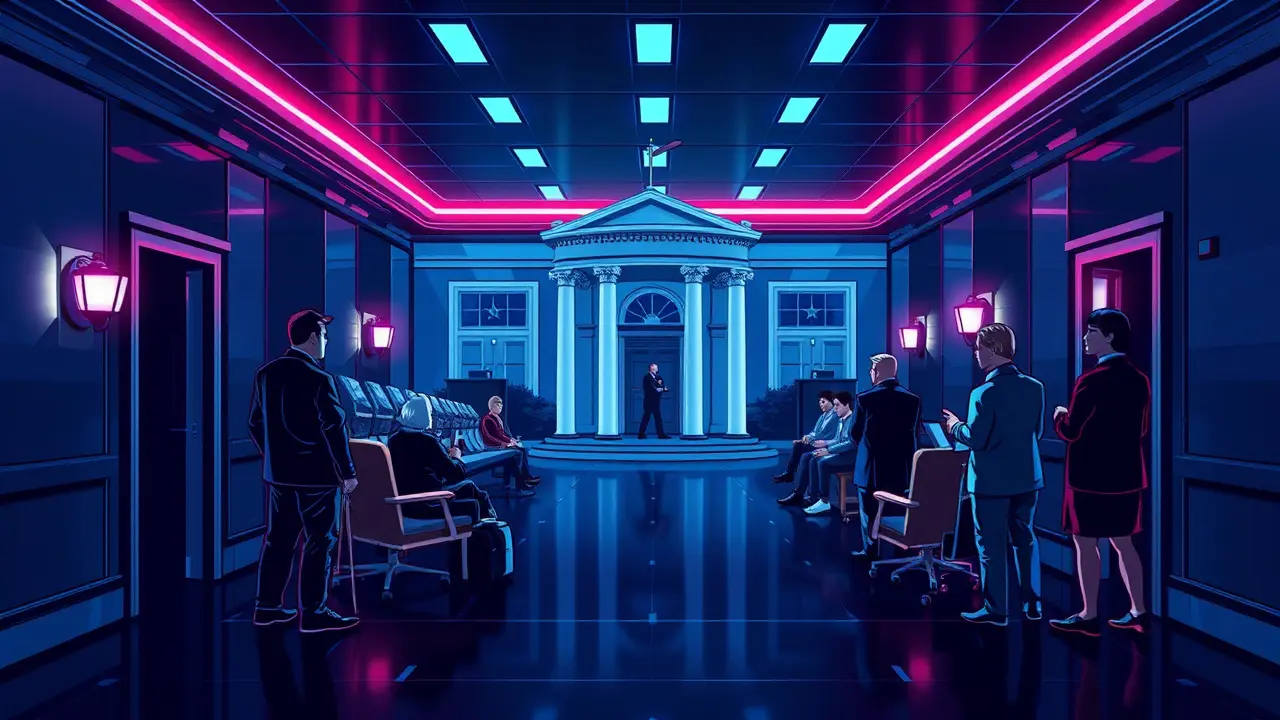
Politicsgovernments & cabinetsPolicy Agendas
White House Restricts Journalist Access to Press Offices.
MA
Mark Johnson
2 days ago7 min read
The West Wing's corridors of power grew noticeably quieter for the press corps on Friday as the Biden administration dropped a strategic bombshell that fundamentally alters the decades-old dynamic between journalists and the people they cover—a new memorandum from the National Security Council now restricts credentialed reporters from freely accessing Room 140, the nerve center known as 'Upper Press' housing press secretary Karoline Leavitt and other top communications officials situated perilously close to the Oval Office. This isn't merely an administrative tweak; it's a calculated maneuver in the perpetual political trench warfare, effectively forcing journalists to secure prior appointments for interactions that were once spontaneous, a move the administration frames as essential for safeguarding sensitive materials but which seasoned political operatives immediately recognize as a classic play to control the narrative, manage messaging, and minimize unscripted, potentially damaging encounters.Drawing from my own time in the chaotic engine rooms of political campaigns, I see this as a tactical shift reminiscent of strategies deployed during high-stakes election cycles, where limiting access isn't just about security—it's about shaping perception. Historically, the ability to roam certain West Wing areas provided reporters with invaluable, off-the-record context, the chance to read body language after a difficult briefing, or to catch a senior aide for a clarifying comment that could reframe an entire story; severing that access is akin to cutting a sensory nerve.The immediate consequence is a more sanitized, controlled information flow, pushing journalists toward formal, on-the-record statements and scheduled interviews that are easier to manage and spin. We've seen variations of this before, of course—the Trump administration's fraught relationship with the 'fake news' media often played out in public confrontations, while the Obama administration, for all its perceived smoothness, perfected a disciplined, centralized messaging apparatus.But this move, cloaked in the sober language of national security, represents a significant institutionalization of that control. Political risk analysts are already gaming out the scenarios: will this lead to more aggressive reporting as journalists, feeling shut out, dig harder through alternative channels? Or will it result in a more passive press corps, reliant on official handouts? The ripple effects extend beyond the White House briefing room; this sets a precedent that statehouses and government agencies nationwide may emulate, further widening the chasm between the governed and those who govern. It’s a bold gambit, one that bets the administration can withstand the inevitable criticism about transparency in exchange for tighter command over its daily narrative—a high-stakes wager where the ultimate price could be paid in public trust.
#White House
#press access
#media restrictions
#security protocol
#Karoline Leavitt
#featured
Stay Informed. Act Smarter.
Get weekly highlights, major headlines, and expert insights — then put your knowledge to work in our live prediction markets.
Comments
It’s quiet here...Start the conversation by leaving the first comment.
© 2025 Outpoll Service LTD. All rights reserved.